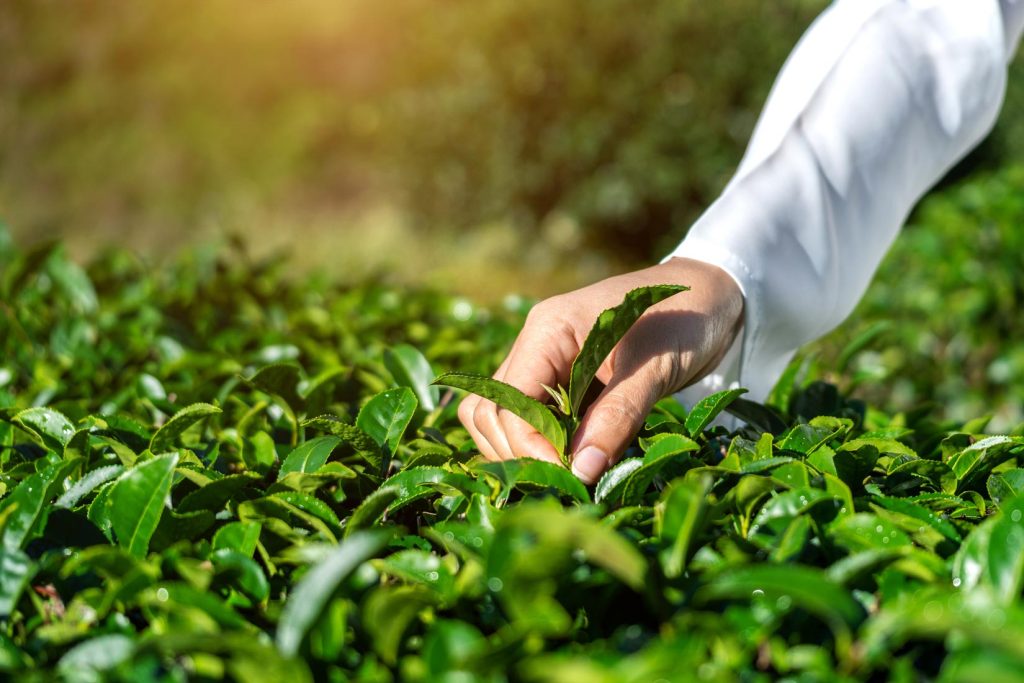Ceylon tea refers to tea produced in Sri Lanka’s highlands. It’s available in a number of colors, is rich in antioxidants and may help heart health, weight loss, and blood sugar management for type 2 diabetes.

Ceylon tea is popular among tea enthusiasts for its rich flavor and fragrant aroma. While there are some differences in terms of taste and antioxidant content, it comes from the same plant as other types of tea and boasts a similar set of nutrients.
Certain types of Ceylon tea have been linked to impressive health benefits — ranging from increased fat burning to better blood sugar control and decreased cholesterol levels.
So what really is Ceylon Tea?
Ceylon tea refers to tea produced in the highlands of Sri Lanka — formerly known as Ceylon.
Like other types of tea, it’s made from the dried and processed leaves of the tea plant, Camellia sinensis. However, it may contain a higher concentration of several antioxidants, including myricetin, quercetin, and kaempferol. It’s also said to differ slightly in flavor. The tea’s notes of citrus and full-bodied taste are due to the unique environmental conditions in which it’s grown.
It’s commonly available in oolong, green, black, and white Ceylon varieties — which differ based on specific processing and production methods.
Impressive Nutritional Profile.
Ceylon tea is an excellent source of antioxidants — compounds that help counter oxidative cell damage. Research suggests that antioxidants play a central role in health and may protect against chronic conditions, such as cancer, diabetes, and heart disease. In particular, Ceylon tea is rich in the antioxidants myricetin, quercetin, and kaempferol.
Green Ceylon tea contains epigallocatechin-3-gallate (EGCG), a compound that has exhibited powerful health-promoting properties in human and test-tube studies.
All Ceylon tea varieties supply a small amount of caffeine and several trace minerals, including manganese, cobalt, chromium, and magnesium.
Can Ceylon Tea help lose weight?
Some studies have found that adding tea to your daily diet can burn fat and enhance weight loss. One review reported that black tea helps reduce body weight by blocking the digestion and absorption of fat to reduce calorie intake.
Certain compounds in tea may also help activate a specific enzyme involved in breaking down fat cells that prevents fat accumulation.
A study in 240 people showed that consuming green tea extract for 12 weeks led to significant reductions in body weight, waist circumference, and fat mass.
Another study in 6,472 people found that hot tea consumption was associated with lower waist circumference and lower body mass index.
Can Ceylon Tea help stabilise Blood Sugar levels?
High blood sugar can have several adverse effects on health, including weight loss, fatigue, and delayed wound healing. Research suggests that adding certain varieties of Ceylon tea to your daily routine may help keep blood sugar levels steady and prevent adverse side effects.
For instance, one small study in 24 people showed that drinking black tea was able to significantly reduce blood sugar levels in people with and without prediabetes.
Similarly, a large review of 17 studies noted that drinking green tea was effective at reducing levels of both blood sugar and insulin — a hormone that regulates blood sugar.
What’s more, other studies observed that regular tea consumption may be associated with a lower risk of type 2 diabetes
Can Ceylon Tea help stabilise Blood Sugar levels?
Heart disease is a major problem, accounting for an estimated 31.5% of deaths worldwide. Certain varieties of Ceylon tea may help decrease risk factors for heart disease and improve heart health. In fact, several studies found that green tea and its components can reduce total and LDL (bad) cholesterol, as well as triglycerides — a type of fat found in your blood.
Similarly, one study showed that black tea was able to decrease levels of both total and LDL (bad) cholesterol in people with elevated levels.
Still, more research is needed, as other studies have not observed a significant impact of black tea on cholesterol levels.
SOURCE: https://www.healthline.com/nutrition/ceylon-tea

